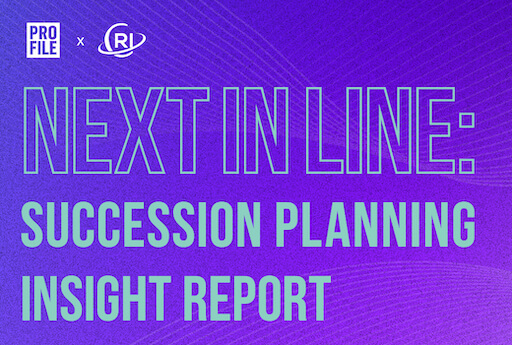|
Getting your Trinity Audio player ready...
|
Earlier in my career, as I was building out a compliance program, a mentor told me something I’ll never forget. “Don’t forget to focus on ferreting out the bad apples,” she said.
My mentor had good reasons for offering this advice. As she explained to me, research has proven that some employees—“bad apples”—can influence unethical decision-making, underpin corrupt organizational cultures, and create unnecessary compliance risks.
I was grateful for her advice, but the concept of bad apples struck me as a very simple explanation for a much more complex problem. As a psychology major, I studied a great deal of research on human behavior, including research by social psychologist Philip Zimbardo. His findings revealed that misconduct and wrongful behavior are not due to “bad apples,” per se. Rather, they are a consequence of what happens when someone works in a bad barrel—“barrel” referring to an environment in which individuals are influenced to make poor choices, or otherwise conduct themselves in an undesired manner.
Although Zimbardo’s work may be viewed as controversial by some, the core principles around human behavior that he drew from his research resonated with me on a deep level. And I continued to keep these themes at the forefront of my mind as I embarked on my journey as a compliance professional.
Three Keys to Compliance Success
Compliance is a human-centric, behavior-driven function. As stewards of ethical conduct, advocates of transparency, and creators of compliant cultures, compliance professionals all have the same basic mandate: first and foremost, you must model the conduct you expect to see.
But it’s no use modeling good conduct if employees aren’t motivated to emulate it. If, for example, a compliance professional remained in their ivory tower and commanded adherence to policies and procedures yet avoided exposure to the trenches and the day-to-day activities that signaled whether there was a larger issue brewing, their compliance program would likely be very unhealthy.
That is why the second essential element of a successful program is building relationships and engendering trust with your stakeholders. That starts with in-person interactions. When you observe issues firsthand and demonstrate that you maintain an open-door policy, the lines of communication remain open—thus allowing you to more readily take the temperature of the organization and more accurately gauge the quality of your “barrel.”
But there is a third component to successful compliance programs that most compliance professionals don’t seem to be aware of. In addition to modeling the correct behavior and building relationships, these professionals must acknowledge (and capitalize on) the human-centric nature of the compliance function by implementing behavioral science principles.
How do you encourage employees to always uphold a moral compass, even when you’re not paying attention? How do you motivate employees to come to you proactively rather than waiting until they’re forced to admit a mistake? How can you address misconduct without castigating or alienating the employee involved? Behavioral science is the key to all of these questions.
Curiosity, Candor, and Compelling Conversations
You don’t have to be a psychologist or scientist to detect behavioral trends or apply behavioral principles. At their core, those principles are very simple. All you have to do is stay curious, candid, and committed to engaging in compelling conversations.
The first step is to harness your intellectual curiosity. Familiarize yourself with cross-functional stakeholders, ask questions, and get to know employees at all levels across the organization. Most importantly, converse with them to understand their views on the “barrel” in which they work.
As Zimbardo established, “apples” are likely to conform to the social behaviors they see around them—even if that behavior contravenes their moral principles—simply because they want to fit in. We compliance professionals need to pay attention to these cues and remain curious about the organizational environment so we can apply a predictive approach to our programs, prevent unethical conduct, and reinforce the significance of integrity.
The second step is to foster a culture of candor—and by that, I don’t just mean that employees should be honest with their colleagues. They must also be honest with themselves.
Research performed by psychologist and coauthor of Blind Spots, Anne Tenbrunsel, reminds us that everyone can fall subject to ethical fading. In short, this means that the ethical component of a decision fades to the background because the individual in question is focused on a larger goal.
Take, for example, a sales employee who is desperately trying to meet his annual sales target to ensure he receives his bonus. As a victim of ethical fading, he may fudge numbers or create fictitious customers to meet his goal. Amid this act, he views reality through a distorted lens so he can justify his actions, reduce his feelings of guilt, and assure himself that his moral compass is still intact. He views himself as a good apple although his actions demonstrate otherwise.
Once compliance professionals recognize that misconduct is occurring, they must not rush to blame the employee involved or accuse them of deliberate dishonesty. Instead, they must rely on the third pillar of behavior science principles: open, empathetic conversations.
Say there’s an employee who’s been working on a high-profile contract. You might ask them if they engaged in appropriate conduct to secure that contract. If they, like so many others, are a victim of ethical fading, they might respond with something along the lines of “No, we did not bribe anyone . . . We just ‘greased the wheels.’”
Your first response to hearing this cannot be “That’s the same thing as bribery. You were lying when you told me all conduct was appropriate.”
No, your first instinct must be to start a conversation about the issue, and to approach that conversation with an open mind. You need to understand this employee’s perspective, and understand why they responded the way they did, before you can begin helping the employee appreciate your perspective and understand what you need them to do in the future.
An Urgent Need for Action
We have been seeing a sharp increase in the number of business challenges arising from the pandemic, supply chain shortages, recent economic pressures, and geopolitical conflicts. As a result, exposure to scenarios fraught with risk is at an all-time high—and the importance of high-quality compliance programs is greater than ever before.
It is the responsibility of compliance professionals to arm themselves with an arsenal of tools so they can proactively address these risks. And the most important, most underutilized tool is behavioral science—a commitment to curiosity, candor, and compelling conversations.
These three principles are the keys to unlocking an ethical corporate culture and creating an environment where an understanding of human behavior and psychological triggers is paramount. An environment where all apples will thrive.
Tiffany Archer is the global head of compliance, risk, and privacy for Pall Corporation (a Danaher company). In this role, she oversees Pall Industrial’s global compliance program and advises on the areas of ethics and compliance, anti-bribery and corruption, regulatory risk, data privacy, cross-border internal investigations, and reputational risk management. Additional areas of oversight include anti-money laundering compliance, sanctions compliance, and financial crimes. With over eighteen years of experience across financial institutions, leading global law firms and Fortune 500 companies, Archer’s roles have spanned the Asia-Pacific, Latin America, and Europe regions.
She also serves as an adjunct law professor for Fordham University School of Law. Archer has experience representing multinationals before US regulators, including the SEC and DOJ, as well as federal monitors. She draws passion and excitement from the ever-evolving legal, ethics, and compliance landscape and in serving as a trusted and practical business leader.
Archer holds a BA from the University of Pennsylvania and a JD from the George Washington University Law School.















